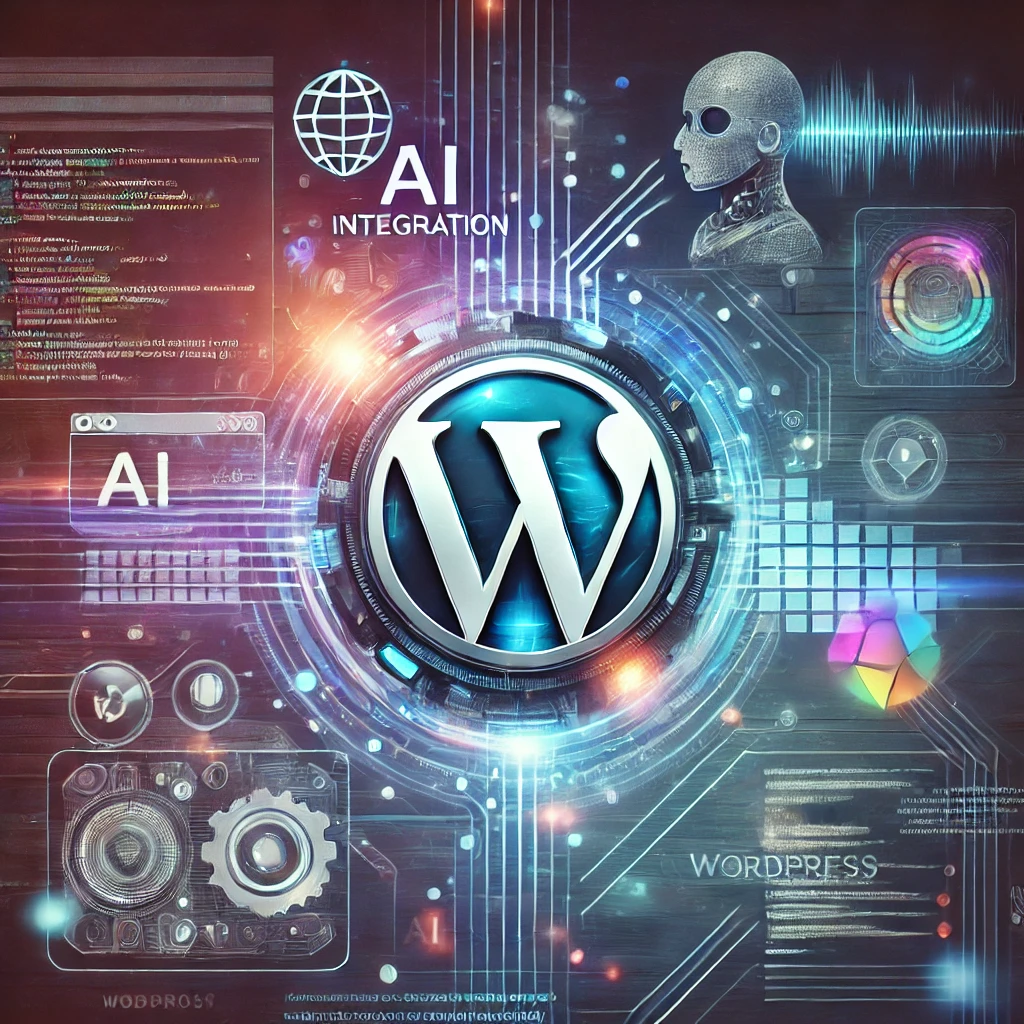The Future of WordPress: What’s Next for Website Development?
WordPress has long been the dominant force in website development. With its unmatched flexibility, scalability, and ease of use, it powers over 40% of all websites globally, from personal blogs to major corporate sites. As technology continues to evolve at a rapid pace, the future of WordPress will be shaped by emerging trends, innovations, and user demands. In this blog post, we will explore the key developments that will define the future of WordPress and how they will impact website development for businesses and individuals alike.
The Evolution of WordPress: A Brief Overview
Before diving into the future, it’s essential to reflect on WordPress’s evolution. Launched in 2003 as a simple blogging platform, WordPress quickly grew into a full-fledged content management system (CMS). Its open-source nature, combined with a vast ecosystem of themes, plugins, and developer contributions, allowed it to become the most popular website platform in the world.
The introduction of the Gutenberg block editor in 2018 was a significant milestone. It transformed the way content is created and managed within WordPress, shifting the focus to a more visual and user-friendly experience. This was a clear signal that WordPress was committed to keeping pace with modern web development trends. But what lies ahead? Let’s explore the trends that will shape the future of WordPress.
Key Trends Shaping the Future of WordPress
1. The Continued Rise of Gutenberg and Full-Site Editing
The Gutenberg block editor has fundamentally changed how WordPress users interact with content. Instead of relying solely on shortcodes or custom coding, users can now build complex layouts using blocks. The future of WordPress will see Gutenberg continue to evolve, with more features and capabilities being added to the editor.
Full-site editing (FSE) is one of the most anticipated developments. This will allow users to design and customize every aspect of their website—header, footer, sidebars, and more—using the block editor. FSE will empower users to create entirely unique websites without needing to rely on themes or developers for customization. As this feature rolls out, the future of WordPress will be more about visual, drag-and-drop design, reducing the reliance on coding for common tasks.
In addition, Gutenberg will likely see improvements in performance, usability, and third-party integration. Developers will continue to create custom blocks that extend the functionality of the editor, allowing for even more creativity and flexibility. As a result, WordPress will remain accessible to both beginners and experienced developers, making it a platform that evolves with its users.
2. Headless WordPress: The Decoupled Future
One of the most exciting trends in the future of WordPress is the rise of headless WordPress. In a traditional setup, WordPress serves both as the front-end and back-end of a website. However, with a headless configuration, WordPress operates as the back-end CMS, while the front-end is handled by another technology, such as React, Vue.js, or Angular.
Why go headless? This approach allows for more flexibility in how content is delivered. It enables the creation of fast, dynamic web applications that are decoupled from the constraints of WordPress themes. Developers can build custom front-ends that offer superior performance, design freedom, and enhanced user experiences while still using WordPress to manage content.
For businesses, headless WordPress represents an opportunity to future-proof their websites. As user expectations for speed and interactivity grow, a headless approach allows companies to create cutting-edge digital experiences that can compete with modern web applications. The future of WordPress will see more developers and businesses embracing this architecture as they seek to create high-performance websites and applications.
3. Artificial Intelligence and Machine Learning: Smart WordPress Websites
AI and machine learning (ML) are making their way into nearly every industry, and the future of WordPress will be no exception. We’re already seeing AI-driven tools integrated into WordPress, such as content optimization plugins, SEO analysis tools, and chatbots that provide customer support. These AI applications are just the beginning.
In the future of WordPress, AI will play a more significant role in automating tasks, personalizing user experiences, and enhancing website functionality. For example, AI could be used to analyze user behavior on a website and automatically suggest content or products that are most relevant to each visitor. This level of personalization will be crucial for e-commerce websites looking to increase conversions and improve customer satisfaction.
Machine learning could also be employed to help website owners optimize their sites for search engines, predict traffic patterns, and even generate content. Imagine a WordPress plugin that uses ML to create blog post outlines or suggest topics based on trending keywords. These kinds of tools could revolutionize content creation, making it faster and more efficient than ever before.
4. Focus on Performance and Speed
As user expectations for fast-loading websites continue to rise, the future of WordPress will place a greater emphasis on performance and speed optimization. Core updates to WordPress will likely include features that automatically enhance website performance, such as improved image compression, lazy loading, and better handling of JavaScript and CSS files.
Serverless technologies and static site generators are also becoming more popular among WordPress developers. By generating static HTML versions of dynamic WordPress sites, these tools can deliver ultra-fast page loads without sacrificing the flexibility of the CMS. This approach is ideal for content-heavy websites that need to serve large audiences quickly.
Moreover, the future of WordPress will see continued improvements in hosting solutions specifically designed to optimize WordPress performance. Managed WordPress hosting providers will focus on delivering faster load times, better caching, and advanced security features, all tailored to the unique needs of WordPress users.
5. Enhanced Security Features
As the most widely used CMS in the world, WordPress is a prime target for cyberattacks. Ensuring that websites built on the platform remain secure will be a top priority in the future of WordPress. We can expect more robust security measures to be integrated into the core WordPress software, along with better tools for managing security at the site level.
Two-factor authentication, encryption, and improved password management will likely become standard features. WordPress will also need to stay ahead of emerging threats, such as bot attacks, malware, and phishing schemes. To do this, security plugins and services will continue to evolve, offering more advanced protection against a growing array of online threats.
The WordPress community will also play a crucial role in keeping the platform secure. As new vulnerabilities are discovered, updates and patches will be rolled out more quickly to ensure that websites remain protected. The future of WordPress will involve a more proactive approach to security, with a focus on preventing attacks before they occur.
6. Accessibility and Inclusivity
In recent years, there has been a growing awareness of the importance of web accessibility. Ensuring that websites are usable by people with disabilities is not only the right thing to do, but it’s also increasingly required by law. The future of WordPress will see a continued focus on making the platform more accessible to all users.
This will involve the development of new tools and features to help website owners create accessible content. For example, WordPress themes and plugins will need to comply with the latest accessibility standards, such as WCAG 2.1. Developers will also need to prioritize creating websites that are optimized for screen readers, keyboard navigation, and other assistive technologies.
Accessibility will be a key consideration in all future WordPress updates. By making the platform more inclusive, WordPress will ensure that it remains a viable option for all website owners, regardless of their audience’s needs.
7. Mobile-First Design
With over half of all web traffic now coming from mobile devices, mobile optimization is more important than ever. The future of WordPress will involve a shift towards mobile-first design, where websites are built with mobile users in mind from the start. This means ensuring that sites are not only responsive but also optimized for speed, performance, and user experience on mobile devices.
WordPress themes will continue to evolve to meet these needs, with a focus on delivering faster load times and better navigation on smartphones and tablets. In addition, new tools and plugins will be developed to help website owners optimize their content for mobile users, from AMP (Accelerated Mobile Pages) support to mobile-specific SEO features.
As mobile usage continues to rise, the future of WordPress will involve a greater emphasis on creating websites that are fully optimized for the mobile experience. This will be crucial for businesses looking to engage with their audience and remain competitive in an increasingly mobile-centric world.
The Business of WordPress: Monetization and Growth
8. The Future of E-Commerce on WordPress
WordPress has become a leading platform for e-commerce, largely thanks to WooCommerce, which powers millions of online stores. The future of WordPress in e-commerce will involve even more advanced features, particularly as online shopping continues to grow.
Expect to see innovations such as AI-driven product recommendations, personalized shopping experiences, and streamlined checkout processes. WooCommerce will likely continue to expand its capabilities, offering new ways for businesses to sell their products and manage their stores more efficiently. Payment options will also become more diverse, with better support for digital wallets, cryptocurrencies, and other emerging payment methods.
9. The Expanding WordPress Ecosystem
The WordPress ecosystem has always been one of its greatest strengths. With thousands of themes, plugins, and tools available, WordPress users can customize their websites in virtually any way they choose. The future of WordPress will see this ecosystem continue to expand, with even more specialized solutions for different industries and use cases.
As new technologies emerge, developers will create plugins and integrations that allow WordPress to connect with other platforms and services. For example, integrations with CRM systems, marketing automation tools, and AI applications will become more common. This will give businesses even more options for extending the functionality of their WordPress websites and improving their operations.
Conclusion: The Future is Bright for WordPress
The future of WordPress is filled with exciting possibilities. As the platform continues to evolve, it will remain a top choice for website development, thanks to its flexibility, scalability, and ease of use. Whether you’re a developer looking to build the next generation of web applications or a business owner seeking to create a cutting-edge website, WordPress has the tools and capabilities to help you achieve your goals.
With a focus on performance, security, accessibility, and new technologies such as AI and headless architecture, the future of WordPress is set to be brighter than ever. Now is the time to embrace these innovations and start building the websites of tomorrow.







Leave a Reply